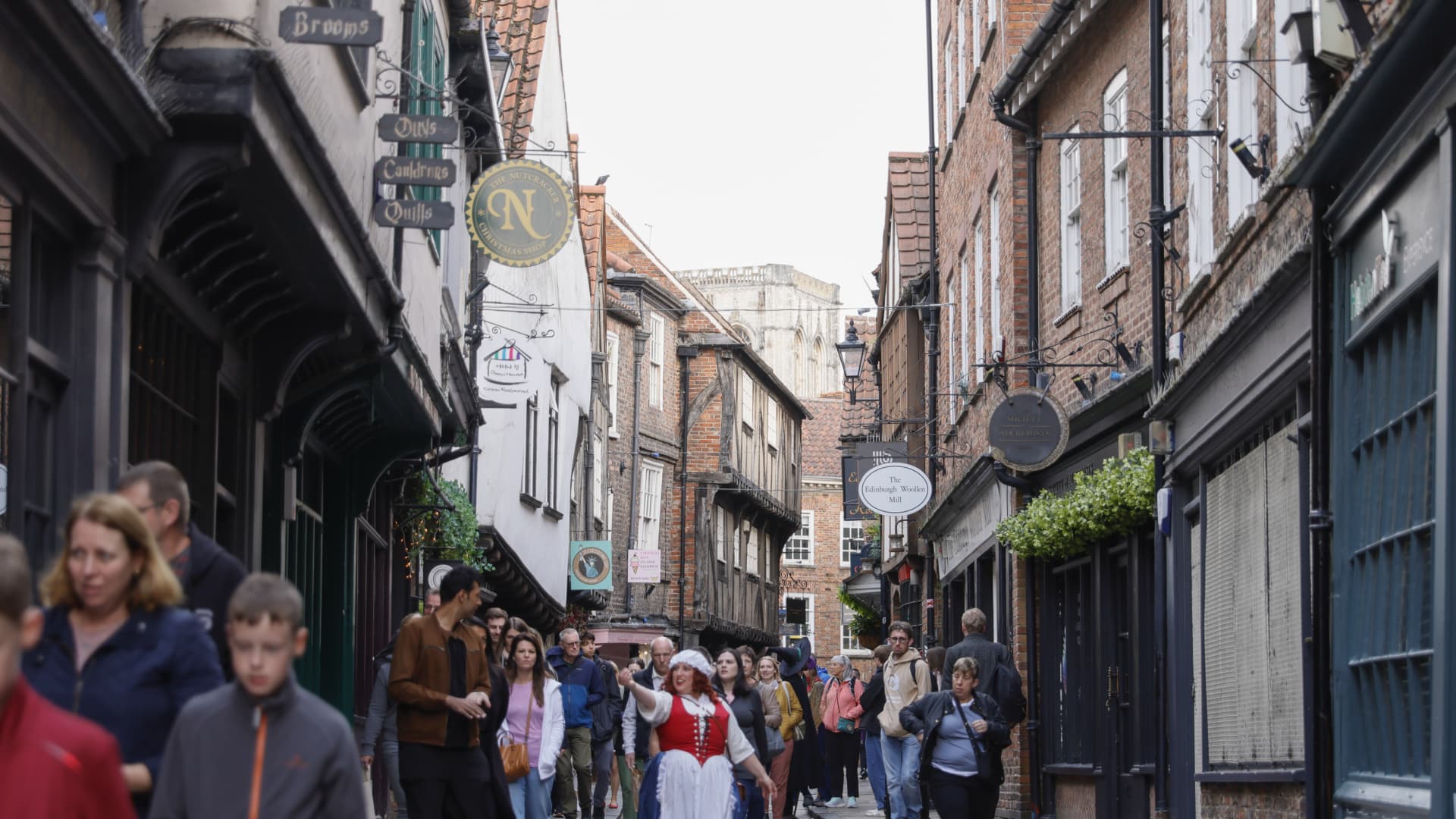The U.K. economy grew by 0.6% in the second quarter of the year, the Office for National Statistics said Thursday, continuing the country’s cautious recession rebound.
The reading was in line with the expectations of economists polled by Reuters and follows an expansion of 0.7% in the first quarter.
Economic growth was flat in June, in line with a Reuters poll, as activity in the U.K.’s dominant services sector dipped 0.1%. Construction and production output rose by a respective 0.5% and 0.8% in the month.
The British economy has recorded slight but steady growth almost every month so far this year, as the U.K. exits a shallow recession. GDP was also flat in April, when wet weather quelled retail sales and construction output.
On an annual basis the economy was 0.9% bigger in the second quarter, against a forecast of 0.8%.
“These figures confirm that the UK’s recovery from recession picked up steam in the second quarter, despite strike action and wet weather causing activity to flatline in June,” Suren Thiru, economics director at the Institute of Chartered Accountants in England and Wales, said in a note.
“The UK’s strong second quarter owes more to temporary momentum from the large recent falls in inflation and a boost to consumer spending from events like Euro 2024 than from a meaningful improvement in the UK’s underlying growth trajectory,” Thiru continued.
The pace of growth is unlikely to continue into the second half amid weaker wage growth, high interest rates and supply challenges, Thiru added.
U.K. inflation rose to 2.2% in July, data published Wednesday by the ONS showed, coming in slightly below a consensus forecast of 2.3%. The headline figure had been at the Bank of England’s 2% target rate for the two months prior, helping spur the central bank’s decision to cut interest rates by 25 basis points at the start of August.
The July figures were described by analysts as supportive of consistent monetary easing through the rest of the year, despite stubbornness in services inflation.
Over the April-June period, U.K. wage growth excluding bonuses cooled to a two-year low, but remained relatively hot at 5.4%.
Richard Carter, head of fixed interest research at Quilter Cheviot, said lower interest rates should “help stimulate more economic growth by making borrowing more affordable for households and businesses” in the coming months — but noted that it would take time for the impact to be felt.
The British pound ticked slightly higher following Thursday’s GDP release, and was up by 0.1% against the U.S. dollar and 0.2% against the euro at 7:35 a.m. in London.
Institutions including the International Monetary Fund, investment bank Goldman Sachs and the Bank of England have all hiked their growth forecasts for the U.K. economy in recent months. The IMF now sees growth of 0.7% this year, up from 0.5% previously.
Factors cited include the decline in inflation and reforms to planning and business rules planned by the new Labour government, which took office in July. Prime Minister Keir Starmer and Finance Minister Rachel Reeves have repeatedly stated that boosting economic growth will be the bedrock of their policymaking, setting a target for the U.K. to achieve the fastest per capita GDP growth among the Group of 7 nations.
“The new Government is under no illusion as to the scale of the challenge we have inherited after more than a decade of low economic growth and a £22 billion black hole in the public finances,” Reeves said in a statement Thursday.
Labour is due to deliver its first budget on Oct. 30, with analysts saying the announcement will give more clarity on the government’s fiscal strategy and plans for changes to taxation and public spending.
Because of this, “it is unlikely that we will see a marked acceleration in GDP in the short term,” said Quilter Cheviot’s Richard Carter.
“For now, the economy is expected to continue on its relatively moderate growth path, bolstered by wage growth that remains ahead of inflation and the recent easing of monetary policy,” he added.

 Finance1 week ago
Finance1 week ago
 Blog Post1 week ago
Blog Post1 week ago
 Personal Finance1 week ago
Personal Finance1 week ago
 Personal Finance1 week ago
Personal Finance1 week ago
 Economics1 week ago
Economics1 week ago
 Economics5 days ago
Economics5 days ago
 Economics1 week ago
Economics1 week ago
 Accounting4 days ago
Accounting4 days ago






















